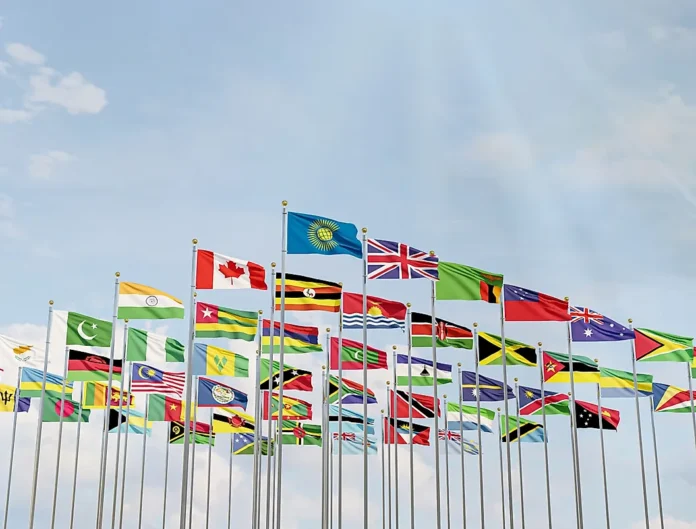Nigeria has joined 55 other Commonwealth nations in a renewed push to unlock a projected $2 trillion intra-Commonwealth trade market by 2030 — a collective move to boost economic resilience, promote sustainable growth, and lift millions out of poverty.
The initiative was one of the outcomes of the Commonwealth Finance Ministers’ Meeting held on the sidelines of the World Bank and International Monetary Fund Annual Meetings in Washington, D.C., United States.
According to a statement by the Federal Ministry of Finance, Nigeria’s delegation, led by Minister of State for Finance Doris Uzoka-Anite, reaffirmed the country’s support for the Commonwealth’s trade and development agenda.
“With collective action and determination, the Commonwealth nations are set to achieve a brighter economic future, driving growth, prosperity, and improved livelihoods for millions across the Commonwealth,” Uzoka-Anite said.
Trade Within the Commonwealth: Cheaper and Faster
The Commonwealth Secretariat noted that trade among member nations is, on average, 21% cheaper than trade with non-members due to shared legal systems, common languages, and institutional similarities that reduce transaction costs.
It said intra-Commonwealth trade could reach $2 trillion by 2030 if the bloc continues to prioritise trade facilitation, innovation, and connectivity.
The Commonwealth comprises 56 nations, mostly former British colonies, representing over 2.5 billion people and a combined GDP exceeding $13 trillion.
Nigeria’s active participation may improve its export opportunities, attract more investment, and strengthen its position under the African Continental Free Trade Area (AfCFTA) framework.
Debt and Resilience in a Changing Global Economy
Addressing the session virtually, Commonwealth Secretary-General Shirley Ayorkor Botchwey described the period as “one of the most testing in modern economic history,” citing rising debt vulnerabilities, shrinking development finance, and escalating climate-related costs.
“Growth is slowing. Debt vulnerabilities are rising. Development finance is tightening just when the climate crisis demands more of our resources. But if the storm is real, so too is the opportunity,” she said.
Botchwey urged member nations to leverage what she called the “Commonwealth Advantage” — a blend of historical ties, trade linkages, and institutional familiarity — to enhance economic cooperation and collective resilience.
She also announced that 2026 will be the Commonwealth Year of Resilient, Innovative, and Sustainable Debt, marking 40 years of the bloc’s Debt Management Programme, which pioneered mechanisms such as blue bonds, catastrophe bonds, and the Commonwealth Meridian debt management system now used in 41 countries.
New Funding for Education, Skills, and Infrastructure
Botchwey revealed plans to establish a Resource Mobilisation Directorate to attract funding for digital education, skills development, and infrastructure projects across member states.
She called on governments to increase support for the Commonwealth Fund for Technical Cooperation, stressing that “our task is not merely to manage debt, but to build a global financial architecture that is inclusive, responsive, and structured for shared prosperity.”
“Let us turn our solidarity into prosperity. If we stand together, we can turn today’s headwinds into tomorrow’s pathways of growth and opportunity for every Commonwealth nation,” she added.
As global trade patterns shift and climate pressures mount, will Nigeria’s renewed engagement with the Commonwealth be a new era of opportunity for its exporters and investors?
Rate, Like 👍, Comment 💬, Share this article, Follow us on our social media handles, and Submit your own story to get featured and earn rewards!







